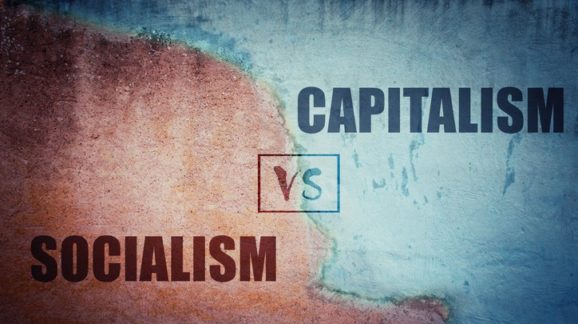Leftwing conspiracy theories about 1971 “Powell memo” debunked in new CEI report

A new Competitive Enterprise Institute report debunks a leftwing conspiracy theory that free market interests seek a “corporate domination of America” (as Greenpeace put it) allegedly envisioned in a 1971 memo written by Lewis Powell, a prominent Republican lawyer (and later Supreme Court justice).
CEI analysts Richard Morrison and Iain Murray revisit the 52-year-old Powell memo that grips the imagination of the left. They set the record straight and identify surprising similarities to today’s political attacks on free enterprise. Far from being an attempt at anti-democratic dominance as alleged, the free-market activism championed by Powell and conducted by his ideological descendants sought to protect the individual speech, property, and association rights of all Americans.
In 1971, Powell was worried about political hostility to free enterprise in America from articulate, vocal leftwing extremists within institutions like colleges, churches, and the media. He was concerned that anti-capitalist attitudes had expanded from the radical fringe of communist and socialist activists to more respectable intellectual and journalistic thought leaders, including artists, scientists, and politicians. He was worried when business leaders responded by either ignoring or trying to appease attackers rather than fighting back.
Powell decided to make the case, in a 34-page memo to allies at the U.S. Chamber of Commerce, that something must be done to fight the “Attack on American Free Enterprise System.” The memo helped spur the subsequent creation of free market organizations like the Heritage Foundation, the Cato Institute, and others aimed at supplying intellectual ammunition to bolster the cause of economic freedom.
Do we face a similar threat to the institutions of a market economy today?
“Major U.S. corporations embrace progressive social movements that Powell himself saw as a threat,” said Morrison. “And too many of today’s young people view ‘capitalism’ negatively.”
“A big source of the threat to economic liberty stems from a fracturing of conservatives themselves,” said Murray. “Traditionalist conservatives and small-government libertarians were strategically allied in opposing new burdens and restrictions on private enterprise, but over the last several years, that alliance has been shaken by a surge of populist, anti-corporate sentiment.”
Morrison and Murray urge unity among Americans who value economic freedom against the expansion of government authority, prioritizing that over disagreements on other issues.
- View the CEI report, Threats Then and Threats Now: The Powell Memo’s Anti-Capitalist Alarm Bell by Richard Morrison and Iain Murray